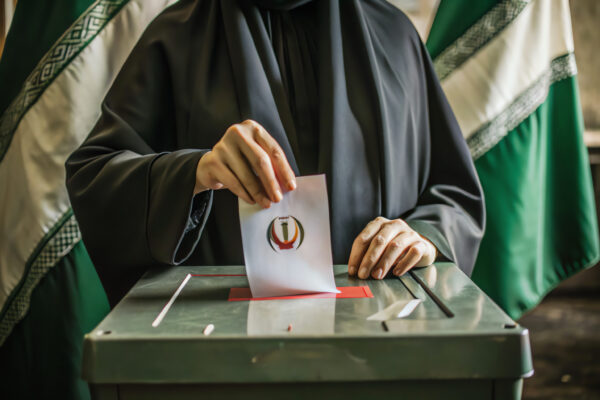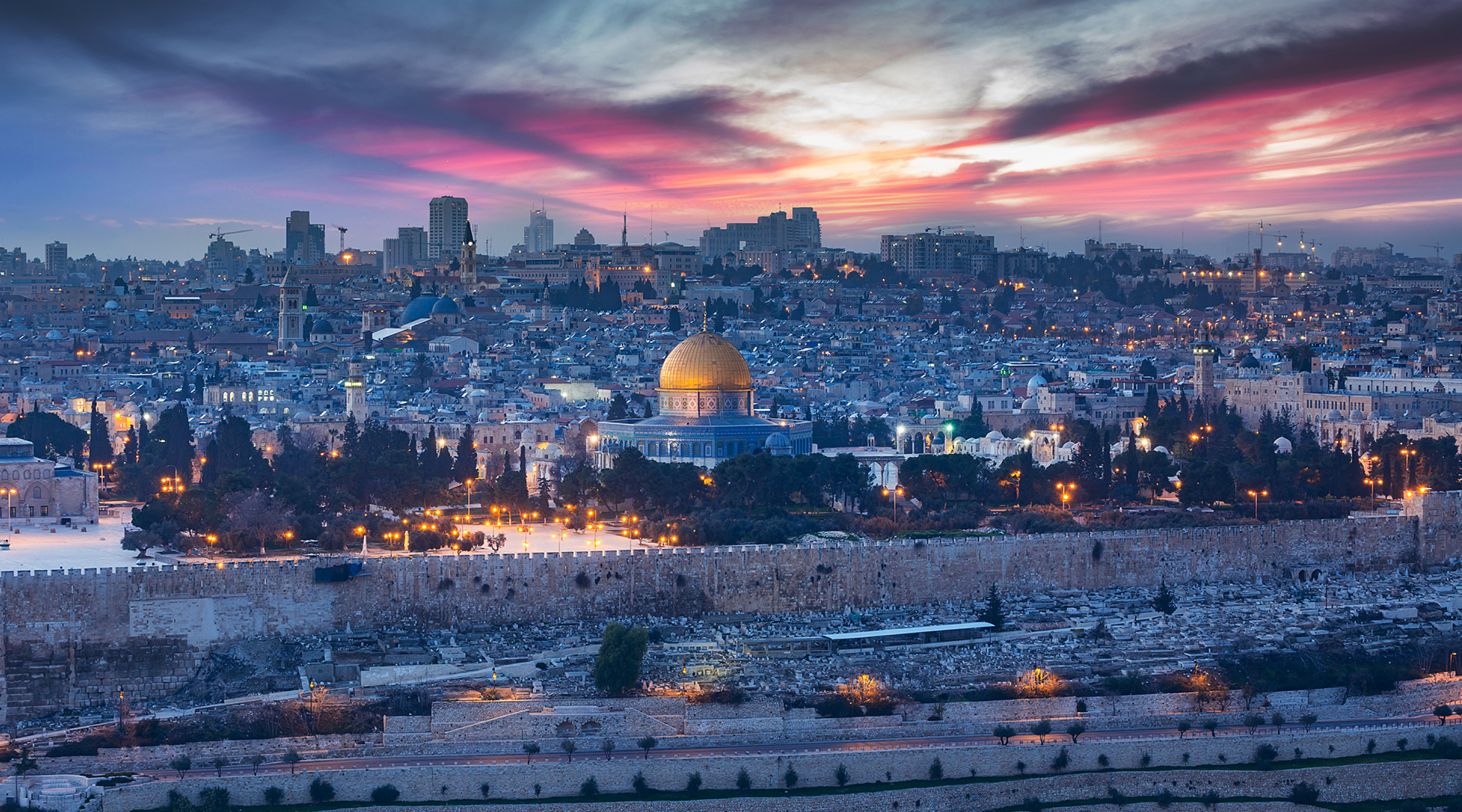
Iran elected its new president last Friday, July 5, 2024. The former heart surgeon turned politician, Masoud Pezeshkian, received 53.7 percent of the vote in a run-off election to defeat hard-liner, Saeed Jalili. He is Iran’s ninth president since the Islamic Revolution in 1979. Pezeshkian is considered a moderate and a reformer when compared to the other candidates he faced in an unexpected presidential election to replace Iran’s former president, Ebrahim Raisi, who died in a helicopter crash on May 19, 2024.
As president, Pezeshkian promised Iranians that he would “open Iran to the world and deliver freedoms its people have yearned for” (The Jerusalem Post). After the election results confirmed Pezeshkian had won, videos were posted on social media platforms which showed Pezeshkian’s supporters dancing in the streets, honking their car horns, and handing out candy to celebrate his victory. The next day, Pezeshkian acknowledged “the difficult path ahead” but offered an olive branch to his fellow Iranians, stating, “I extend my hand towards you and swear on my honour that I will not leave you alone on this path. Don’t’ lead me alone” (Al Jazeera).
World leaders with strategic and/or potential partnerships with Iran were quick to congratulate Pezeshkian on his surprise rise to Iran’s presidency. Russian President Vladimir Putin said, “I hope that your tenure as president will contribute to a reinforcement of constructive bilateral cooperation between our friendly peoples” (Al Jazeera). Saudi Arabia’s Crown Prince Mohammed bin Salman said, “I affirm my keenness on developing and deepening the relations between our countries and people and serve our mutual interests” (Al Jazeera). Communist China’s President Xi Jinping said, “I attach great importance to the development of China-Iran relations and am willing to work with the President to lead the China-Iran comprehensive strategic partnership towards deeper advancement. . . . Faced with complex regional and international situations, China and Iran have always supported each other, worked together and continued to consolidate strategic mutual trust” (Al Jazeera). And India’s Prime Minister Narendra Modi said he looked forward to working with Pezeshkian in order “to further strengthen our warm and long-standing bilateral relationship for the benefit of our peoples and the region” (Al Jazeera).
Pezeshkian also received a congratulatory message from Hamas leader Ismail Haniyeh. The Jerusalem Post reported that “The Hamas chief noted that the Palestinian people ‘are confident in your capabilities to serve Iran, overcome all challenges and difficulties, and take steps towards the unity of the Islamic ummah [nation] against its enemy, as well as to assist the Palestinian cause as the main issue of the Islamic world.’”
Prior to the election many wondered if this moderate reformer will attempt to change Iran’s hostile policies towards the United States and Israel. Will Pezeshkian be willing and able to convince the Supreme Leader Ayatollah Ali Khamenei to extend an olive branch to Israel and halt all forms of terrorism against Israel and her allies through its proxies (i.e., Hamas, Hezbollah, and the Houthis)? Or will Pezeshkian attempt to convince the Ayatollah and the Iranian Revolutionary Guard Corps (IRGC) to stop enriching uranium at its nuclear facilities and fully comply with the inspectors of the International Atomic Energy Agency (IAEA)? And will Pezeshkian be able to convince the Iranian powers-that-be regarding the wisdom of redirecting funds towards rebuilding Iran’s feeble economy and liberating its people from the heavy-handed, authoritarian rule that has led to the ruthless slaughter of many of its citizens since the Islamic Revolution in 1979?
The world did not have to hold its collective breath for very long to discover the answers to these questions. Pezeshkian swiftly took to the phone and connected with Iran’s allies in order to reassure them that it will be business as usual for Iran. During his phone call with Putin, Pezeshkian said, “We attach great importance to relations with our friendly and neighboring country Russia, and we will undoubtedly strengthen these relations” (The Jerusalem Post). To the Iraqi Prime Minister Mohammed Shia al-Sudani, Pezeshkian commended the Iraqi government for its “wise and dignified” opposition to Israel, which he accused of “crimes against the people of Gaza” (Breitbart). And to Hezbollah’s leader Hassan Nasrallah, Pezeshkian offered praise for the terrorist regime’s missile attacks against Israel, saying, “The Islamic Republic has always supported the resistance of the people of the region against the illegitimate Zionist regime. . . . I am certain that the resistance movements in the region will not allow this regime to continue its warmongering and criminal policies against the oppressed people of Palestine and other nations in the region” (The Jerusalem Post).
Just in case his comments to Nasrallah about Israel were not clear enough for those in the West to understand, Pezeshkian declared that he seeks “friendly relations with all countries except for Israel” (The Algemeiner). And before U.S. officials become too optimistic about the prospects of fostering a better relationship with Iran because of its new “moderate,” “reformer” president, it is also important to note that Pezeshkian has been an outspoken critic of the U.S. For example, after Iran shot down a U.S. drone, Pezeshkian triumphantly declared it “a strong punch to the mouths of the leaders of criminal America” (The Algemeiner).
All that said, the truth is the 69 years old retired heart surgeon turned politician will be limited in what he can do for Iran because the Iranian President is not the true power in Iran. He might be able to affect some change domestically but ultimately he will have to answer to the true power in Iran, the Supreme Leader Ayatollah Khamenei. In practice this means that whenever the Ayatollah tells President Pezeshkian to “Jump,” he will ask the Supreme Leader, “How high?”
In addition to the Ayatollah, Pezeshkian will also have to answer to the IRGC. In his analysis of the IRGC and its influence over Iran’s newly elected President, Seth J. Frantzman observed, “There is a proverb here that is worth recalling when hearing stories about another Iranian ‘reformer’. The motto is ‘trust, but verify’. In fact, in this case it’s not even worth trusting. The Iranian regime is more than just the president and he will not have much power to recast Iran’s role in the region. The Islamic Revolutionary Guard Corps is like an albatross around the Iranian state, smothering it and using it for its own needs.” Frantzman adds, “What this means is that the Iranian nuclear program will likely continue to advance into a weaponization phase; Iran’s proxies will continue to attack Israel; and Iran will continue to form ties with Russia, China and other countries that oppose the West. . . . The new Iranian president will therefore likely only bring bad things to the region, rather than any kind of reform” (The Jerusalem Post).
Please join me in praying for Israel and her people.
by Dr. Matthew Dodd | July 11, 2024
